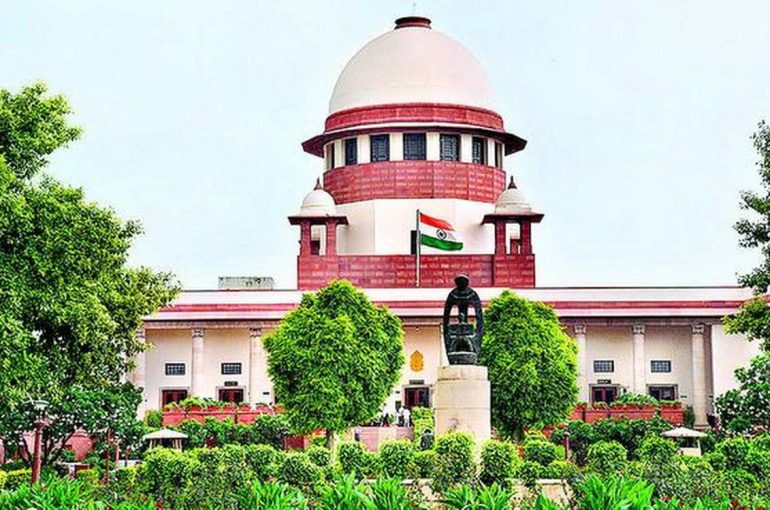SHADOWS OF COERCION: CORPORATE OPPRESSION AND JUDICIAL INTERVENTION

INTRODUCTION
Corporate disputes are rarely confined to financial ledgers; they often expose deeper struggles of power, trust and fairness. The Supreme Court’s ruling in the matter of Mrs. Shailja Krishna v. Satori Global Limited & Ors. (Civil Appeal Nos. 6377–6378 of 2023) (Date of Judgement 2 September 2025) (Justice Dipankar Datta and Justice K. Vinod Chandran) demonstrates how shareholder conflicts, intertwined with personal relationships, can escalate into allegations of coercion and fraud. At the heart of the case lies a fundamental question—how far should judicial forums go in safeguarding probity in company affairs while respecting the corporate structure.
BRIEF FACTS
The Company was incorporated in 2006 with the Appellant, Mrs. Shailja Krishna, and her husband as its founding promoters. Over time, she acquired a near-total majority holding, controlling almost the entire share capital. Following a breakdown in marital relations, disputes emerged.
In December 2010, board meetings were recorded where the Appellant allegedly resigned, and a gift deed purportedly transferring her shareholding to her mother-in-law was executed. The Appellant challenged these developments, alleging coercion, tampering of share transfer forms beyond their validity, and manipulation of records.
2018 (NCLT): Found irregularities in the transfer process, declared the gift deed invalid, restored the Appellant as Director, and annulled the contested resolutions.
2023 (NCLAT): Reversed the findings, holding that the NCLT lacked jurisdiction to determine issues of fraud and coercion.
It was thereafter that the Appellant approached the Supreme Court.
ISSUES FOR DETERMINATION
- Was the petition under Sections 397–398 of the Companies Act, 1956 maintainable?
- Could the NCLT examine the validity of the gift deed and related allegations of fraud?
- Were the share transfers and resolutions legally sustainable?
- Did the circumstances amount to oppression and mismanagement of the Appellant’s rights as a shareholder?
ANALYSIS
The Supreme Court affirmed that the petition was maintainable. It reasoned that when allegations of fraud or coercion directly affect shareholder rights, the NCLT has authority to intervene under Sections 397–398. Limiting its powers, as the NCLAT had done, would undermine the remedial purpose of these provisions.
On jurisdiction, the Court clarified that disputes over the validity of share transfers and gift deeds fall within the Tribunal’s scope when they are central to complaints of oppression and mismanagement.
Turning to the facts, the Court found the transfer documents unreliable. The share transfer forms showed overwriting, mismatched dates, and were processed beyond their statutory validity. The gift deed was also held inconsistent with the company’s Articles of Association, which restricted transfers to certain relatives.
Equally significant were the procedural lapses in board meetings—no valid notices were served, and the quorum requirement was not met. These irregularities rendered the resolutions, including acceptance of resignation and transfer of shares, legally untenable.
Collectively, the Court found a pattern of conduct prejudicial to the Appellant, establishing oppression and mismanagement.
CONCLUSION
The ruling underscores that company law remedies are not limited to technicalities but extend to ensuring fairness and integrity in governance. By restoring the NCLT’s order, the Court reinforced the principle that shareholders cannot be stripped of their rights through coercion or manipulation. Particularly in closely-held or family-run companies, where personal disputes often spill into corporate affairs, judicial oversight remains essential to maintain probity and equity.
SARTHAK KALRA
Senior Legal Associate
The Indian Lawyer & Allied Services
EDITORS COMMENTS
In closely held companies, where the shares are held by the husband and wife, situations like the above facts are common when there is a fallout in the matrimonial relationships between the parties. At that juncture, either one of the spouses tries to manipulate the shareholding pattern to gain control on the company. Obviously, the affected director/shareholder has no option but to approach the Company Court, namely NCLT for oppression and mismanagement. When a matter is before the Company Court on oppression and mismanagement, the court has vast powers to examine and investigate the full facts to arrive at a decision as to whether or not there has been oppression and mismanagement. The Apex Court by upholding the powers of the NCLT has rightly armed the NCLT with sufficient powers to decide disputes on oppression and mismanagement. If the court does not have power to get to the root of the matter, the entire proceedings become futile and infructuous.
SUSHILA RAM VARMA
Chief Legal Consultant
The Indian Lawyer & Allied Services
Please log onto our YouTube channel, The Indian Lawyer Legal Tips, to learn about various aspects of the law. Our latest Video, titled “Legal Aspects of Exports in India | Export Laws Explained | Advocate Sushila Ram Varma|” can be viewed at the link below:
https://www.youtube.com/watch?v=2PWPKz1yr-E&t=71s





































Leave a Reply